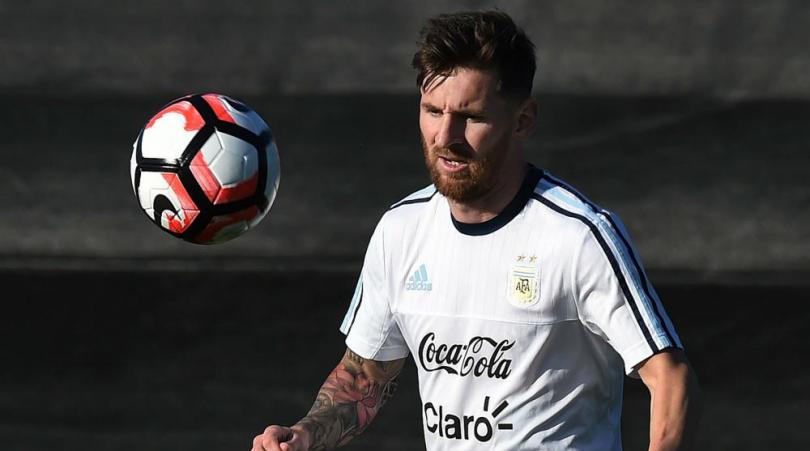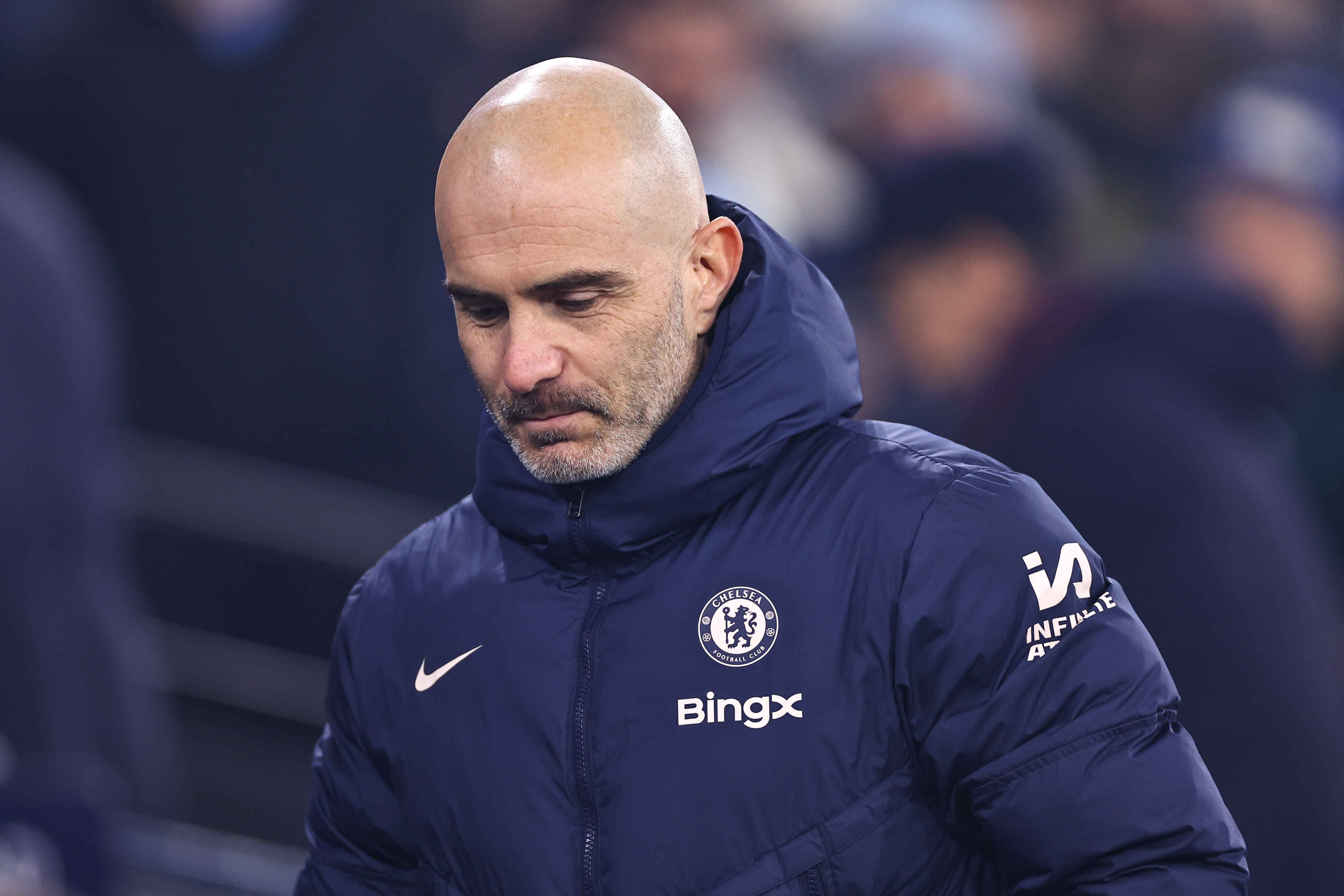Why the Messi vs Maradona debate is flawed (and always will be)
No, Lionel Messi doesn't have to win a Copa America or World Cup title to cement his legacy (though he just might anyway). It's much more complicated than that, Greg Lea writes...
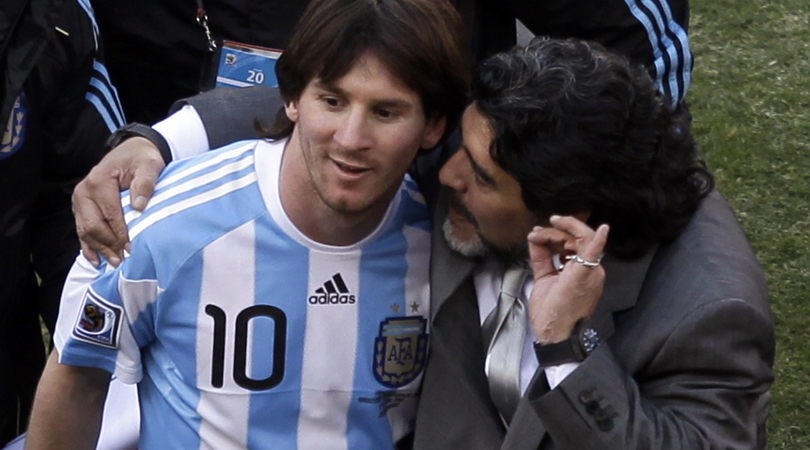
It has been a long and painful 23 years for Argentina.
The two-time World Cup winners and 14-time Copa America champions haven't not got their hands on a single piece of silverware since 1993, despite reaching four finals in that time. They've been strong at junior level, claiming the Under-20 World Cup five times and Olympic gold twice, but a trophy for the senior side has proven elusive. Within that context, triumphing at this summer’s Copa America Centenario in the United States is widely seen as something of an obligation.
It has also become impossible to disentangle the team’s collective shortcomings from the debate over who the greatest Argentine player of all-time is; Lionel Messi, it is often argued, will never surpass Diego Maradona unless he leads his country to glory at a major tournament.
Maradona’s exploits for the Albiceleste are well known. The former Boca Juniors, Barcelona and Napoli forward inspired Argentina to victory at the 1986 World Cup with some majestic performances, before dragging a much weaker side to the final in Italy four years later. Football may be a team game, but it's impossible to argue that Argentina would have managed those accomplishments without its famous No.10.
Lionel Messi, it is often argued, will never surpass Diego Maradona unless he leads his country to glory at a major tournament
Messi, conversely, has yet to sample the taste of success while representing his country at senior level. His first tournament was the 2006 World Cup, where the Barcelona man made only three appearances totalling 121 minutes as Argentina were knocked out by hosts Germany in the quarter-finals.
Messi & Co. then lost 3-0 to Brazil in the Copa America final a year later, and were thrashed by the Germans in the quarter-finals of the World Cup in 2010, with Maradona in charge of a team that was full of quality but lacking coherence and balance. Uruguay beat their neighbours on penalties in the 2011 Copa America, before Argentina suffered heartbreak in both the 2014 World Cup and 2015 Copa America finals, going down to Germany (again) in extra time in the former, and to Chile on penalties in the latter.
This is cool, Messi's goal last night from 9 different angles:
pic.twitter.com/LwNK0io3J3#CopaAmerica#Messi#USAvARG
Get FourFourTwo Newsletter
The best features, fun and footballing quizzes, straight to your inbox every week.
— Rated R ✪✪✪ (@Ade__Star) June 22, 2016
The Maradona preference
For many years, the Argentine public warmed more to the street-smart, rough-around-the-edges Carlos Tevez – who started and could end his senior career at home with Boca Junior
Maradona is not just preferred to Messi by a large number of Argentines because of his World Cup winner’s medal, though. As Borocoto, an influential journalist who worked for the magazine El Grafico, wrote in 1928: “[the personification of Argentine soccer is] a pibe with a dirty face, a man of hair rebelling against the comb; with the intelligent, roving, trickster and persuasive eyes and a sparkling gaze that seem to hint at a picaresque laugh that does not quite manage to form on his mouth, full of small teeth that might be worn down by eating yesterday's bread.”
While that description fits Maradona perfectly, it doesn't really describe the clean-cut Messi, who has not played professionally in his home country. Both factors help explain why, for many years, the Argentine public warmed more to the street-smart, rough-around-the-edges Carlos Tevez – who started and could end his senior career at home with Boca Juniors – than the man who spent most of his teenage years at Barcelona’s polished La Masia academy in Spain.
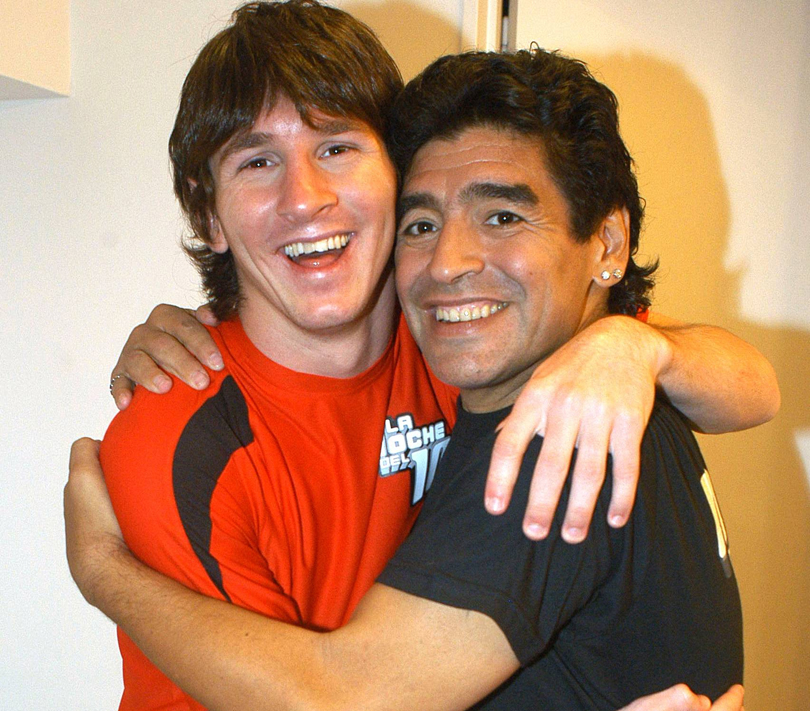
Maradona simply resonates with many more Argentines than Messi does, which helps to ensure he remains the country’s king of football. Is it fair, though, for Messi to be deemed the lesser player because he’s yet to win an international competition?
Football, and six- or seven-game tournaments in particular, can swing on fine margins. Maradona was superb in Argentina’s defeat of England in the quarter-finals in 1986, but if the officials had spotted his infamous ‘Hand of God’ goal then Carlos Bilardo’s side might not have made it through.
In the final, meanwhile, West Germany goalkeeper Harald Schumacher made a major error for Argentina’s opener before the team threw too many bodies forward late on to allow Maradona to set up Jorge Burruchaga for the winner. History could have been drastically altered had some of those events played out slightly differently, but it would be ludicrous to automatically seek to devalue Maradona’s contributions if West Germany had found a way to prevail late on.
It is similarly unfair to dismiss Messi when the outcome in 2014 and 2015 – the Barcelona man was not at his very best in either the World Cup or Copa America, but he still played a decisive role in dragging his side to both finals – could have been so different had his team-mates been more clinical.
Gonzalo Higuain, for instance, missed a glorious one-on-one opportunity against Germany in 2014 that would have given Argentina a lead they may not have relinquished; a year later, the same player was partly culpable as Tata Martino’s men wasted a breakaway against Chile, Ezequiel Lavezzi overhitting his pass and Higuain failing to convert from less than a yard out.
Had both of those chances been dispatched, Argentina could be world and continental champions today, and it feels more than a little reductive to label Messi inferior to Maradona if Higuain misses in those situations, or equal or superior to him if he scores. Messi’s incredible consistency over a number of years for Barcelona surely doesn't require validation in a one-off international match that he can influence to a large extent but never control every aspect of.
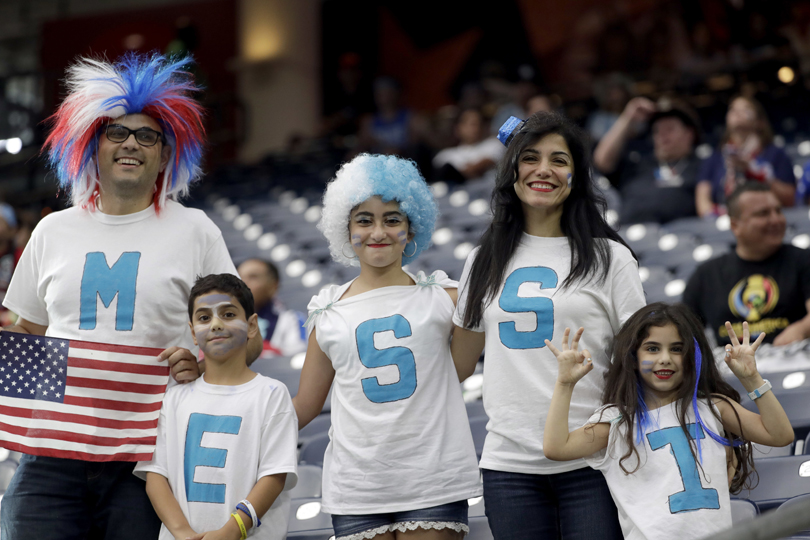
No answer necessary
The latter rounds of the modern-day Champions League have now surpassed the World Cup in terms of quality, with talent from around the globe increasingly concentrated in the hands of an elite few and club sides better-equipped to produce well-coached teams based on an identity of play, given the ample contact time they enjoy with players.
The World Cup, though – and to a lesser extent the Copa America – retains substantial symbolic value. There is far more meaning to these quadrennial competitions, which pit the best of one nation against the best of another. Maradona only ever won three league titles and never got his hands on the European Cup, the predecessor to the Champions League. Messi has eight league titles and four Champions League titles at the age of 28 – but 1986 trumps all given the era-defining memories that the World Cup creates.
All of which is not to argue Messi is a better player than Maradona was, but instead to question the current terms of judgement and the excessive weight placed on the outcome of World Cup and Copa America finals. Indeed, while Argentina look well positioned to end their trophy drought in the Centenario this month after a thumping 4-0 semi-final win over the USA, their success or otherwise will not prove anything in the ongoing Messi vs Maradona debate.
There can never be a definitive and objective answer to such a question – and that’s part of the fun.
Greg Lea is a freelance football journalist who's filled in wherever FourFourTwo needs him since 2014. He became a Crystal Palace fan after watching a 1-0 loss to Port Vale in 1998, and once got on the scoresheet in a primary school game against Wilfried Zaha's Whitehorse Manor (an own goal in an 8-0 defeat).
